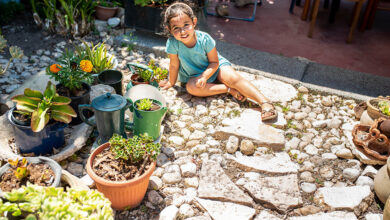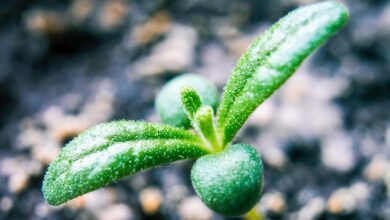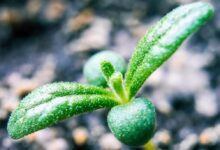
5 Water-Conserving Tips for Your Garden
- Tip 1 - Strategic watering
- Tip 2 - Saving and reusing
- Tip 3 - Check the weather
- Tip 4 - Plant wisely
- Tip 5 - Lawn learning
Gardening is a pursuit in which the use of large amounts of water is called for. If soil is the engine room of the garden, then water is its fuel.
All that water you use throughout each season to keep your garden healthy, potent and beautiful is a necessity. However, there are a few major reasons to try to conserve, ration or reuse water. For one, many of us use water meters which means that overuse can be prohibitively expensive.
Some areas suffer from a lack of water, so using too much can drain underground water reserves, meaning that streams and rivers are plundered, having ecological consequences. No one wants to garden at the sake of the environment.
Happily, there are many ways to conserve water in your garden. Here are some ideas to get you started:
Tip 1 – Strategic watering
It’s a proven fact that many green-fingered types overwater their gardens.
It’s almost a reflex to break out the hose or the sprinklers as soon as you get to work outside. However, this is extremely wasteful – not only with regard to the water supply but also to how much work you’re putting in.
A good benchmark to see if you need to water is to put a spade into the soil (or something the size of a spade). If it’s damp all the way down – no need to water. Excessively dry and it’s time to get the hose going.
Of course, if you have clay soil it will behave differently, and you will need to rely on warning signs from your plants to know when to water and when not to – watch for the signs of dehydration.
And while the temptation to water in the sunshine is great, watering when the sun goes in is much more efficient as less water evaporates.
Tip 2 – Saving and reusing
In drier countries like South Africa or Australia, nowadays many areas impose restrictions on how much water you are allowed to use.
However, with a bit of preparation hosepipe bans in the summer don’t necessarily mean an arid, dried out the lawn in your garden.
There are many ways you can save and reuse water for the garden. First of all – get a rain barrel. These are inexpensive and are available to buy widely, so it shouldn’t be hard to find one (or even upcycle if you can). Set up one or multiple barrels in strategic places (underdrain pipes or other irrigation outflows or in areas with little shelter).
Make that rainy season work for you! Of course, water is often wasted in the house as well as in the garden. Water from the shower, bathtub or even excess cooking water can be cached and stored to use in the garden during the hotter months of summer.
Just remember – don’t use salted water in your garden – this can cause plants to dry out and die.
Tip 3 – Check the weather
This might seem like an obvious one, but before you go wild with the hose, watering cans and sprinklers, it’s worth checking if mother nature is likely to do the hard work for you (and she often uses her own efficient water supply).
Check the weather forecast for the coming days to see if rain showers are forecast, watch the skies and pray for rain! This will also replenish your water barrels (see above) and give you some time off from the labors of gardening.
Tip 4 – Plant wisely
It’s possible to limit the amount of water your garden needs by planning a crop of plants that require less water than others.
There are multitudes of plants available which not only need less water but actually thrive in arid conditions and will survive a drought if need be.
And don’t think you’ll have a garden full of cacti – many dry soil plants can be beautiful and labor-saving.
Try lavender, palms, mimosa, and verbena for great results.
Tip 5 – Lawn learning
Your lawn is likely to be your most demanding customer when it comes to water.
Sprinklers – whilst they water without much hard work involved and are great for the kids to play in – are incredibly uneconomical and therefore not eco-friendly at all.
There are some easy steps to keep your lawn looking great without overwatering – something many of us are guilty of in the pursuit of verdant lushness.
During dry spells, let the grass grow a little longer than you would usually – this helps keep moisture in the soil. Watering less frequently will keep the grass healthier and use less water as it encourages roots to grow more deeply in search of water in the soil.
Don’t be worried if the grass becomes lighter green or even brown – as long as you aren’t getting bald spots, the grass is still healthy and should return to its green glory once the weather becomes more favorable. As with plants, if you live in drought-prone areas or hotter climates, certain types of grass will flourish more effectively in your garden, so it’s worth consulting with your garden centre or a neighbor with a lawn you’re green with envy!
All-in-all, there are other ways outside the garden to save water as well – these shouldn’t be overlooked. Bath in less water and cut down on showers. Wash the car with a bucket and sponge instead of the hosepipe. Wash up in a bowl instead of letting the taps run the whole time.
And encourage the kids to use less water – education goes a long way when it comes to saving and conserving water for your garden and household!






